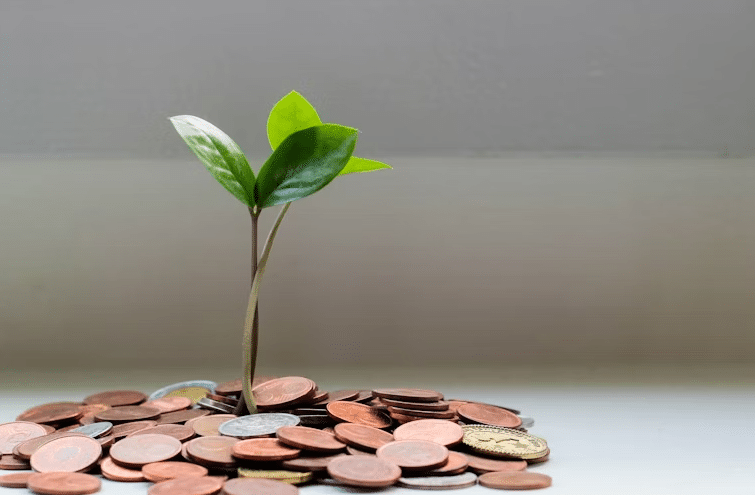Many people count down the days until their next vacation, hoping that a few days away will wash away months of stress. Yet, even when they get that escape, it doesn’t last long. Once the trip ends, the same pressures wait — bills, debt, and work deadlines.
The truth is that peace of mind doesn’t come from travel or luxury; it comes from stability. Real calm is knowing that your rent is covered, your savings are growing, and you don’t have to check your bank balance before buying groceries. That kind of peace doesn’t fade when you return home. It stays with you every day.
Financial freedom gives that steady sense of security. It’s not about being rich or living extravagantly. It’s about removing money-related anxiety so you can make choices without fear.
1. Finding Real Freedom in Everyday Life
True freedom is in paying bills without fear, saving for the future, and still having room to enjoy the present. It’s in knowing that one unexpected expense won’t wreck your month.
Financial stability gives a daily sense of calm that even the most beautiful destinations can’t match. It creates space for better sleep, healthier habits, and stronger relationships. When money is managed well, your energy isn’t spent worrying. You have time to live fully where you are.
One of the simplest ways to build that sense of stability is by helping your savings grow on their own. Many people overlook how much the right bank account can do for them. The annual percentage yield, or APY, shows how much you earn from your savings each year, including the added benefit of compound interest. A higher APY means your balance grows faster, even without extra deposits. For instance, opening a checking or savings account with SoFi APY rates can help account holders earn more on their money while keeping it easy to access when needed.
Each thoughtful step — budgeting, saving, and choosing accounts that reward you for being consistent — strengthens the foundation of real financial freedom. It’s not about earning more overnight; it’s about making steady, smart choices that keep working quietly in the background.
2. How Financial Stability Improves Emotional Well-Being
Money touches nearly every part of life, so it’s natural that managing it well affects how we feel. Financial stress can cause tension, worry, and even conflict at home. On the other hand, control over your finances brings a steady sense of ease.
People who feel financially secure often report being happier and more confident. They make decisions from clarity instead of fear. They can enjoy life’s small pleasures without guilt. Stability allows people to think ahead and plan with optimism.
You don’t need to be wealthy to feel this peace. You just need a system that keeps money organized and predictable. Knowing where your money goes and having savings to fall back on can bring calm that no vacation can replace.
3. Choosing Freedom Over Escape
Vacations offer escape; financial freedom offers choice. There’s a big difference. Escaping means running from problems. Choice means shaping your life on your terms.
When you have financial freedom, you can choose work you enjoy, take time off without debt, or spend more time with family. You don’t feel stuck because of money. That’s a kind of independence that lasts longer than a few days off.
While travel can be wonderful, it’s even better when you’re not using it to avoid your everyday reality. When your finances are healthy, you can enjoy travel for what it is — a reward, not a relief. Financial freedom turns life itself into something you don’t need to escape from.
4. How Debt-Free Living Creates Real Relief
Debt weighs heavily on mental health. The constant reminder of monthly payments can drain energy and cause stress. Paying off debt is not only a financial achievement but also an emotional one. It brings relief and restores control over your income.
Eliminating high-interest debts, such as credit cards or personal loans, allows you to keep more of what you earn. It frees up money for savings, investments, and personal goals. The journey toward being debt-free takes time, but every payment moves you closer to independence.
Debt-free living doesn’t mean avoiding all borrowing. It means managing credit wisely — choosing loans that add value, like a home mortgage or education loan, and repaying them responsibly. The goal is to prevent interest from eroding your income. Once debt is under control, you no longer feel trapped by your obligations. That sense of freedom can be more satisfying than any luxury purchase.
5. The Freedom to Choose How You Live and Work
Financial freedom gives you something most people chase all their lives — choice. When money isn’t a daily worry, you gain the power to make decisions based on what you value, not what you can afford at the moment. You can choose a job for its fulfillment rather than its paycheck, or you can take a break without guilt.
This flexibility also helps during unexpected life changes. If you lose a job, move cities, or start a family, financial stability allows smoother transitions. You can handle changes without panic or rushing into poor decisions. Freedom gives you control over your time and your path.
Having choices doesn’t always mean making big moves. It can simply mean the ability to say yes or no without fear — whether that’s to a purchase, a trip, or a new opportunity. That kind of control brings quiet confidence that’s far more valuable than short-term indulgence.
6. The Confidence That Comes From Long-Term Planning
Planning for the future brings clarity. It helps you see where your money is going and where it should be. Creating goals for savings, retirement, or investments builds structure and removes uncertainty. You’re no longer guessing whether you’ll have enough later — you’re creating a roadmap to get there.
Financial planning doesn’t need to be complicated. It starts with identifying what matters most — a home, education, travel, or a comfortable retirement — and aligning your finances accordingly. Simple steps like contributing to a retirement account or setting up an emergency fund make a huge difference.
The confidence that comes from having a plan extends beyond money. It creates a sense of direction in other parts of life too. You feel organized, secure, and prepared. That steady assurance can’t be found on a week-long escape. It’s built through daily choices that support your future self.
Vacations offer fun and rest, but they end. Financial freedom lasts. It provides comfort, security, and the ability to enjoy life every day without worry. The calm that comes from financial control doesn’t fade when you return home — it grows stronger with time.
When you have enough savings, manageable expenses, and clear goals, your days feel lighter. You stop chasing quick relief and start living with steady peace. Financial freedom doesn’t mean never taking a vacation; it means enjoying one without stress when you do.
True happiness comes from stability, not escape. And once you build that foundation, every part of life — from work to leisure — feels better, because it’s supported by confidence, not pressure.





